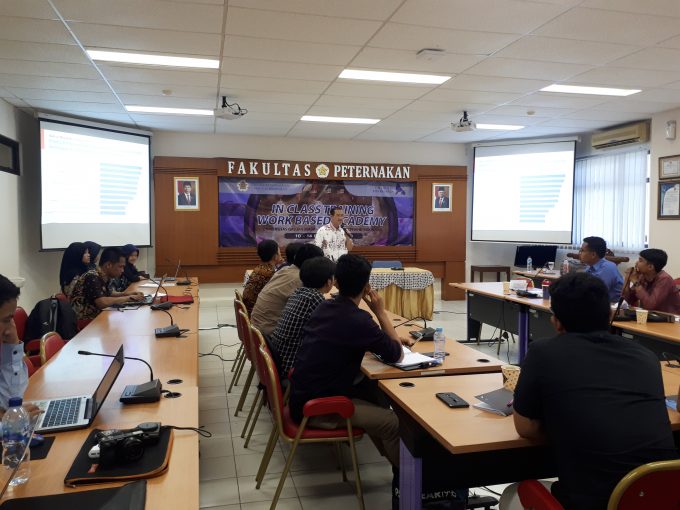
In 2019, the contribution of the agricultural sector to GDP is 14.10% while the national poultry population (broilers) is 87% with a growth of 7% per year. Thus, it can be interpreted that the poultry industry is experiencing an increase eventhough the agricultural sector is under pressure. There is a shift in consumption patterns of livestock products in the community, especially chicken and egg products.
The poultry industry, especially broiler chickens, will continue to grow to meet the community needs of the animal protein, along with the increasing incomes, population growth, and public awareness related to the nutritional and health value of chicken meat. Economic dynamics and animal diseases have implications for the importance of using technology for the cultivation process, in order to produce products that are more efficient, productive and of high quality.
The growth of the poultry industry gives a good prospect for the animal science graduates. Within the scope of the company, livestock graduates can have careers in every business process line of the poultry industry, from farm supervisors to sales officers.
This was revealed by Syafri Afriansyah, Head of Human Capital for Poultry Business of PT Charoen Pokphand Indonesia, Tbk when giving a briefing to participants in the Work Based Academy (WBA) program, Friday (2/14) at the Faculty of Animal Science (FAS) UGM. Syafri Afriansyah revealed, higher education is a booster for the development of the poultry industry. Higher Education as a center of excellence develops education and teaching, research, and community service to produce proven technology that can be applied in the community.
“With this, it is expected that universities will produce quality graduates who are able to answer industry needs as a reference for industry stakeholders. Quality human resources will be a competitive advantage for companies,” said Syafri.
To produce graduates that suits with industry needs, competencies are needed, one of them is the management of closed house. Closed houses are expected to answer the problems of the poultry industry. This animal housing answers the performance problems of the house (FCR, mortality, EEF) as a result of increasingly extreme climate/weather which interferes with the cultivation process. In addition, this house allows for more productive maintenance of chickens, with more and more dense capacity.
Work Based Academy Program
To provide skilled human resources in managing closed houses, Faculty of Animal Science (FAS) UGM collaborates with PT. Charoen Pokphan Indonesia Tbk organizes a Work-Based Academy (WBA) program with the theme of Closed House Broiler Management. The program was attended by 20 fresh graduates of animal science study programs from 7 universities in Indonesia and selected from 139 applicants.
The participants will take part in an in-class training program which is a briefing before they do an internship at a commercial farm broiler. The in-class training program will take place on 10-14 February 2020 at the FAS UGM followed by an internship for 6 months which will end in August 2020. During the in-class training, participants will get basic materials related to the use of closed houses, MEE (mechanical, electrical and energy ), broiler farm partnership system, nutrition, and management of broiler feeding, welfare and health of broilers, as well as visits to teaching farms located in FAS UGM.
Dean of FAS UGM, Prof., Dr. Ir. Ali Agus DAA., DEA., IPU. ASEAN. Eng. said that the WBA program is a 6-month work study program to provide the skills of new graduates of animal science study program in the poultry industry, especially the maintenance of broilers using closed house technology.
“A tropical country like Indonesia with high humidity and temperature often causes chicken stress so that productivity is low. The existence of a closed house makes the environment can be adjusted to the needs of livestock so that livestock productivity will be better,” said the Dean. (Nadia)
